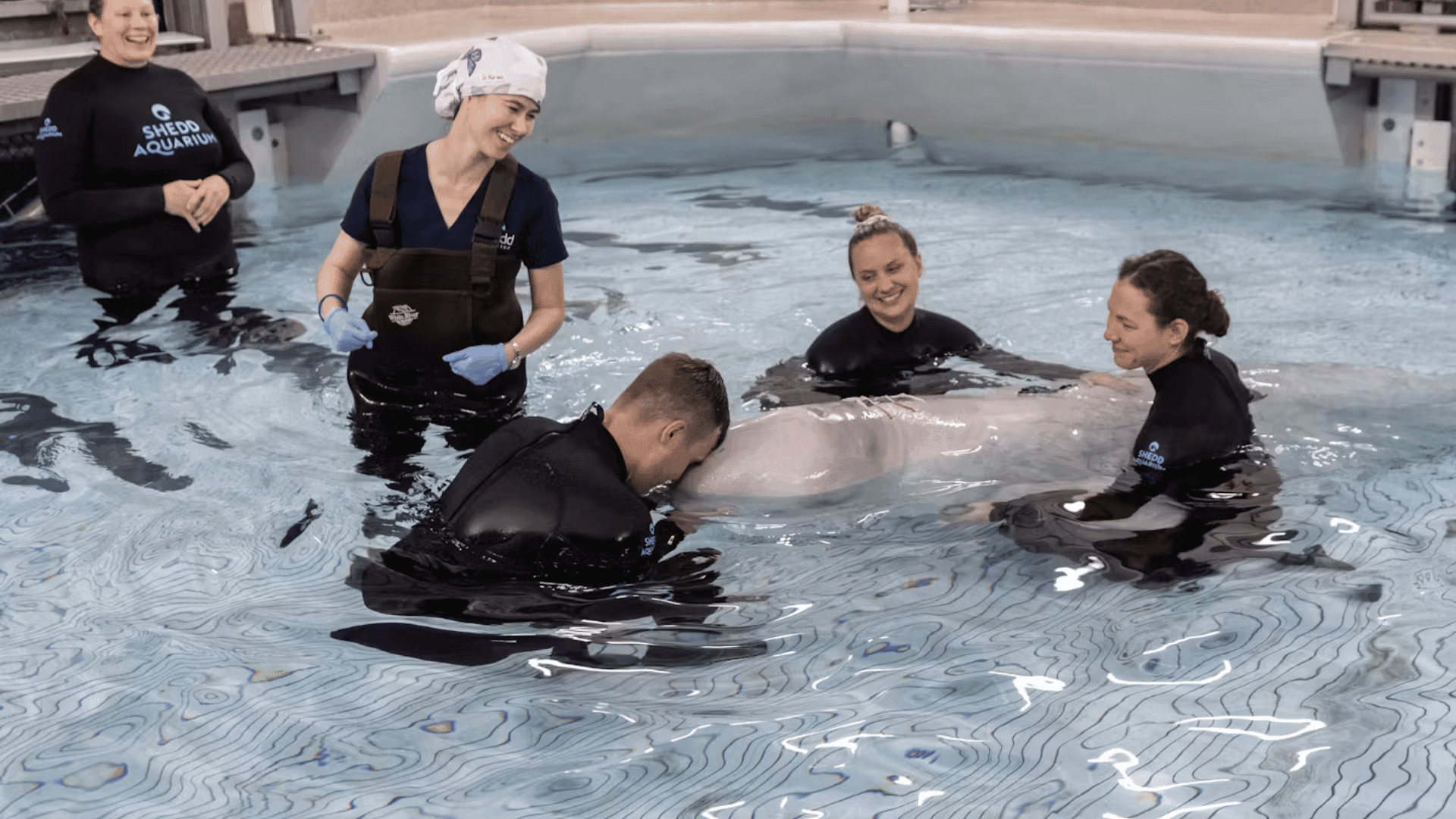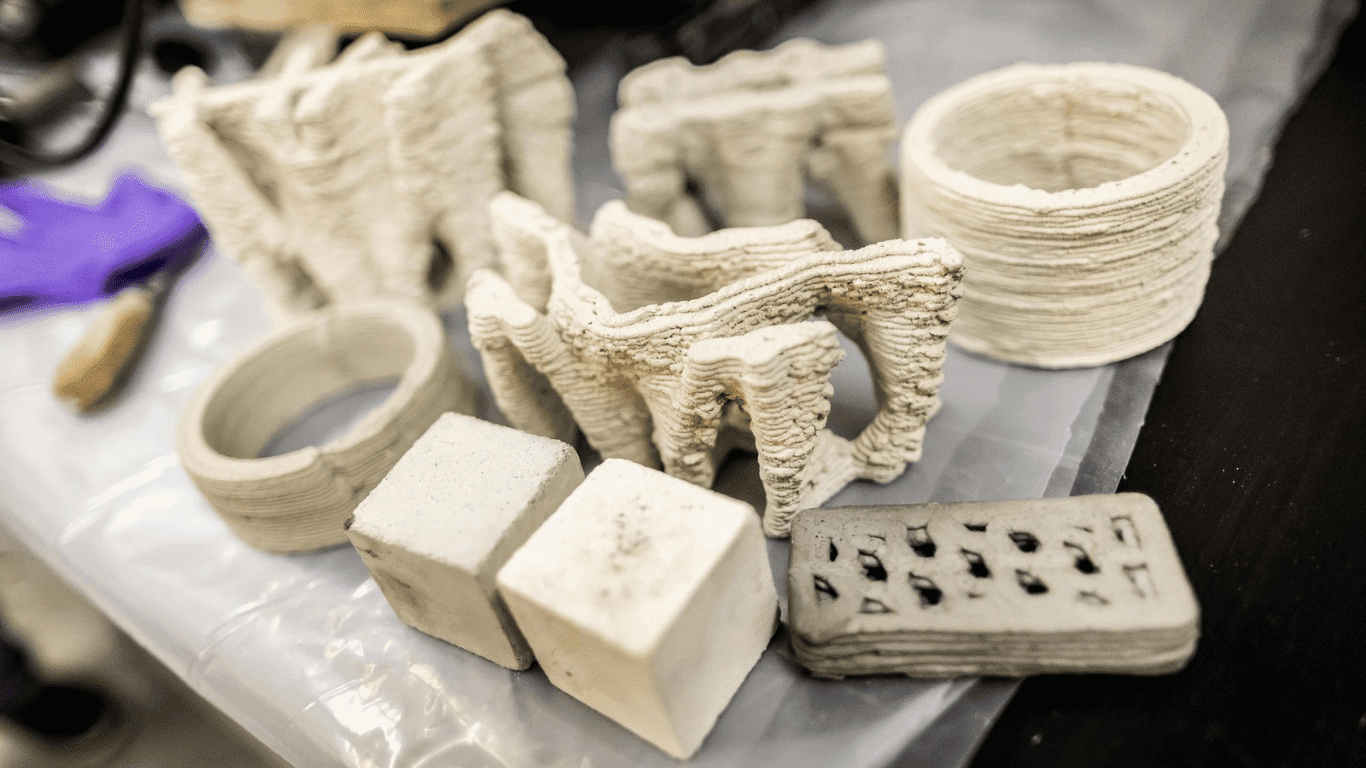Tamara Krinsky is an on-camera host; writes for television, film, and print; acts in stage and screen productions; and moderates and speaks at industry panels on technology, new media and the entertainment industry… there’s very little Tamara can’t do. She’s even a member of the Los Angeles Astronomical Society and a founding member of Scirens – a group of actresses/writers focused on advocating for science literacy and creating science-infused entertainment.
Tamara recently found her way to Pittsburgh while shooting Tomorrow’s World Today. I was able to sit down with her between takes and hear a little bit about where all of her passion and drive began.
I wanted to start by asking you where you’re from and what it was like growing up there?
I’m from Central Jersey, about an hour south of Manhattan. It’s right on the border of where Jersey goes from being suburban to rural, so it was an interesting mix of housing developments, strip malls and the occasional corn field. We were about twenty-five minutes west of the beach, and I spent a lot of time there while I was growing up. Word to the wise: it’s NOT like what you see on Jersey Shore!
There wasn’t a ton to do in my hometown – we spent a lot of time at the movies and the mall – but it was a nice place to grow up. When I moved to L.A., I was actually surprised at how familiar it felt – if you plopped me down blind-folded in the Valley and I didn’t know any better, I’d think I was still in Jersey… well, aside from the palm trees.
Both of my grandparents lived in New York – my grandmother was in Manhattan and my Dad’s parents were in the Bronx. So I got to go to the City a lot which was great; it was nice to have access to that while growing up.

Have you always wanted to be an actress?
I was interested in performing from a very early age. I have a distinct memory of doing a show in kindergarten. It took place in one of those multipurpose rooms – gym at one end, stage at the other. I was in the chorus, which meant I stood on the steps leading up to the stage where the ‘main action’ was taking place. I remember looking up at the people on that stage and thinking, I want to be up there. I want to do more of that. The next year I did my first play, which was The Helicopter Pilot Who Saved Christmas, and I was the helicopter pilot.
Leading Lady from a young age, huh?
Let’s just say I’m glad my elementary school was into gender-blind casting – the helicopter pilot was supposed to be a boy! It’s ironic because I was, and still am in many ways, very shy. People were surprised I wanted to perform because I was the kind of kid who, if my parents took me somewhere and I didn’t know anybody, I’d be off in the corner reading a book. I was very much that kid. But then I’d get up on stage and turn into someone else. It was a whole other side of me.
How did you get started?
When I was a kid, I was really focused on singing even more so than acting., so I did a lot of choir shows. Then I went to a performing arts high school. My school district was unique – it consisted of five high schools in four different towns in that area of Jersey. Each school had a specialized learning center within it – a magnet school. So starting my sophomore year, for half a day I’d go to my “home” school – big, John Hughes-y Sixteen Candles-ish. And then during lunch, I would get on a bus and head over to the Peforming Arts magnet, where me and 12 other kids would run around in leotards doing Greek drama and dreaming about how we were all going to go to New York City and end up on Broadway (plus the one girl who wanted to be on a soap). My gym class was a jazz class, my health class was dancer anatomy.
And would you say you were interested in science from a young age, as well?
I loved both science and sci-fi from a really early age. I especially loved learning about space. I was always outside on the front lawn with my binoculars and this paperback astronomy guide, trying to identify constellations and the planets. I would experiment with chemistry kits, too. And batteries…I had one of those Fun with Electricity kind of books and I’d build circuits with shoeboxes and wires and little light bulbs in the kitchen.
I think, unfortunately, in school I wasn’t encouraged in science because I was a girl. And then on top of that, I was a victim of the assumption that if you were good at or interested in English, reading and the arts, you couldn’t also be good at or interested in science. It was either/or – a really bad example of binary thinking.
That said, if I had been encouraged, I’m not sure I would have had the temperment to pursue a professional career in the sciences…just being honest. For example, I didn’t have a lot of patience when it came to things like waiting for lab results or repeating the same experiment over and over. It was really later on, after I’d gone to college for theater, that I re-immersed myself in the sciences and realized that just because you’re not doing something professionally doesn’t mean you can’t be interested in it and learn about it.

That explains, at least for me, why you have such a passion for making sure girls are encouraged to pursue careers in science at a young age, as well as encouraging STEAM education (science, technology, engineering, arts and math).
I think you’re probably right about that. In high school, because I spent each day at two different schools, I ran into a scheduling problem. I couldn’t take physics because it was only offered at the time when I was at the Performing Arts magnet. And I remember talking to my guidance counselor about it and she said, well you’re doing the arts thing anyway, you’re not going to need physics. My parents did not agree with that idea and I ended up taking physics at a community college over the summer. But I have a quite a few memories of people having that attitude of, why do you care about that? But I did care about it. I cared about it a lot.
Later, when I got out of college, I found myself constantly gravitating to plays, movies and TV shows that had themes that involved science or STEM themes. And that got me curious…I found myself thinking, I keep being drawn to this material, what’s that all about?

It sounds like, in that respect, you found a way of blending both of your passions.
Oh yes, absolutely. And so I went and wrote a one-person show about stem cell research. And Scirens, my creative team, is all about blending STEM and entertainment.
Was there anyone you looked up to? Role Models?
My third grade teacher, Ellen Kramer. I’m telling you her name because I’ve never been able to find her on Facebook or anything, but I dream that someday she’ll see an article or interview where I talk about her and then she’ll know what an impact she had on me.
One of the current ideas that comes up a lot in parenting philosophy conversations is the idea of speaking to your kids respectfully, of not talking down to them. That definitely wasn’t always in vogue, but Mrs. Kramer was an early adopter. She’d talk to us like real people. I remember that so specifically.
There was a day in class where something happened and I got really upset. Like I said, I was shy so I wasn’t always comfortable talking about my feelings. When I told my parents about it, they asked, well did you talk to Mrs. Kramer? I said no and they said, why don’t you write her a letter? So I wrote her out this note detailing what I was upset about and why. It was a big step for me to open myself up that way. And then she actually wrote me back and said, I’m glad you wrote to me, I understand your feelings. I don’t agree with them, but I’m so happy that you trusted me enough to tell me. Now I understand your point of view and I’ll think about that next time. That in itself was incredibly kind, but then she added, You know, I’d really love for us to be pen pals. How would you feel about us exchanging letters every week?
I took her up on it and it really changed things for me. Having another way to express myself. Being made to feel like my ideas mattered. I felt like someone saw me. The funny thing is, years later I found out she did that in different ways with many of the students in my class, but we never knew it at the time. We each thought we were the only one. She had a gift for making each of us feel special.

Any other role models?
I’m kind of obsessed with the British scientist Rosalind Franklin. She was a chemist and radio crystallographer, and her work contributed to understanding the molecular structure of DNA, viruses and coal, among others. It was actually her x-ray diffraction study, specifically Photo 51, that was intrinsic in the discovery of the structure of the DNA molecule. There were a lot of gender politics at work throughout the process and she died in 1958 at age 37 before the Nobel was awarded in 1962 for the DNA double helix. The Nobel committee doesn’t give awards posthumously, but in my opinion, she should have been part of that had she been alive.
But her story is amazing – she was a woman who struggled because she was ambitious and because she wanted to do her own work – not just be someone’s assistant (or be perceived that way). She worked in a lab in France for awhile, where men and women were treated with much more equality, and she thrived there. And then she went back to Britain and suddenly she wasn’t allowed in different areas of the facility because she was a woman. Her story has been rediscovered and told in a few different ways, including Anne Sayre’s Rosalind Franklin and DNA and Brenda Maddox’s Rosalind Franklin. Usually now when you talk about the history of the structure of DNA, her name is right in the mix with Watson, Crick and Wilkins.

As for my own profession, there are a whole bunch of actresses who I look up to, from Meryl Streep to Glenn Close to Reese Witherspoon to Danai Gurira to Tina Fey. Then there’s my Mom, of course, someone who balanced work and family really well. She always encouraged me to pursue my passions. When I decided to head to LA, instead of being mad that I wanted to be so far from home, she said we’ll find a way to stay close across the miles – go follow your dreams. And I’m thankful to my Dad because he was my gateway to sci-fi. It’s a passion the two of us share, from Star Trek to time travel paradoxes. He never made me feel like, oh you’re interested in this and you’re a girl? That’s weird. I’m always really grateful for that.
The fitting end to our time together came with a knock on the door. A TWT crew member came in and delivered a package of Sour Patch Kids to Tamara… who was ecstatic, I may add. If there’s anything I’ve learned from Tamara it’s this: You can be anyone, come from anywhere, and be given as much or as little opportunity as possible. Yet you can still find ways to be inspired. You can still find a way to pursue every one of your passions. And you can always find time to appreciate the simple (and sweet) things in life.







